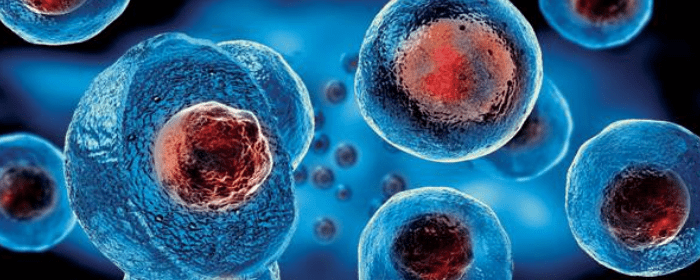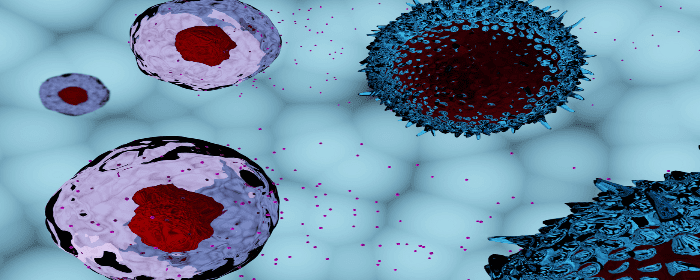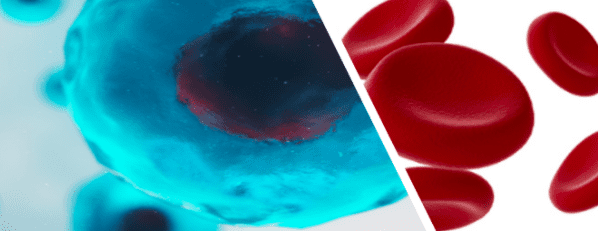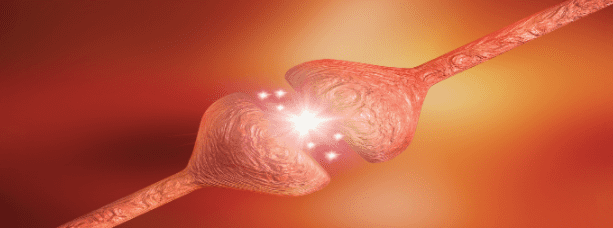
by admin | Jun 29, 2020 | Multiple Sclerosis, Mesenchymal Stem Cells, Stem Cell Therapy
Multiple sclerosis is an inflammatory disease of the brain and spinal cord. The immune system mistakenly attacks the covering of nerve axons called the myelin sheath. Just as an electrical cord that has lost its insulation cannot work properly, so too is it with nerve cells that have been destroyed by MS. Unfortunately, when electrical signals (action potentials) cannot move through axons, it causes neurological problems and disability. People with MS may lose the sense of touch, the sense of sight, the ability to move or walk, and the ability to control bowel or bladder function.
While treatments for MS are intended to reduce inflammation, no treatment has been developed that can repair damaged nerve cells. Scientists recently reviewed the status of stem cell clinical trials to treat multiple sclerosis. The results are encouraging.
No fewer than 8 clinical trials have shown that mesenchymal stem cells can be safely used in patients with MS. Moreover, the phase 2 clinical trials within this group showed that various stem cell treatments reduced the severity of MS. This is especially important because mesenchymal stem cells actually reduced the number of lesions (areas of inflammation and injury) in patients with MS compared to placebo.
Importantly the review determined stem cells were able to improve MS disease and nerve destruction regardless of whether the stem cells were collected from fat tissue, umbilical cord, or bone marrow. Stem cells retrieved from fat (i.e. adipose) reduced MS relapses and delayed the progression of the disease. Likewise, fat-derived stem cells improved sexual satisfaction and improved bowel control 12 months after treatment.
Why are the results of fat-derived stem cells so exciting? Because bone marrow can be difficult to access and umbilical cord tissue must be collected from donors. On the other hand, virtually everyone has excess fat on their bodies. This fat can be safely and easily removed with a simple extraction such as liposuction. A patient’s own fat cells can be removed, processed, and re-infused as stem cell treatment. When someone uses their own stem cells, there is no risk that the body will reject the infusion (as could theoretically happen to donor stem cells).
These results are exciting and welcome information for those who suffer from multiple sclerosis. As larger clinical trials are performed and previous results are replicated, we may see an increase in stem cell treatment options to help manage the symptoms of multiple sclerosis.
Reference: Bejargafshe, M., et al. (2019). Safety and efficacy of stem cell therapy for treatment of neural damage in patients with multiple sclerosis. Stem Cell Investigation. 2019; 6:44.

by admin | Jun 12, 2020 | Exosomes, Stem Cell Therapy
Many clinical studies have shown the safety and benefit of exosomes. As a result, numerous companies have been bringing exosome products to market. However, not all exosomes are the same. The cell type from which the exosomes are collected makes an enormous difference in safety and results.
Scientists have recently drawn attention to the fact that cell type matters when it comes to exosomes. Virtually every cell in the human body releases small packets of substances called exosomes. The number of exosomes and the substances inside exosomes can vary considerably, depending on the type of cell. Exosomes derived from stem cells and stromal cells have received the most research attention. That is because exosomes from stem cells contain most of the substances that provide a benefit to patients from stem cells. In other words, if you receive treatment of exosomes from stem cells, you are basically getting additional benefits from the exosomes that you would have gotten from just the stem cells themselves. However, the source of the stem cell exosomes matter.
Most of the research done in this area revolves around two types of stem cells: Exosomes taken from bone marrow mesenchymal stem cells and exosomes taken from placental mesenchymal stem cells. Bone marrow stem cells seem to have two major advantages over the placenta-derived stem cells. The first is that bone marrow stem cells have a stronger ability to modulate the immune system. The second is that bone marrow stem cells have immune privilege, which means they can avoid the body’s immune system. Specifically, placenta stem cell exosomes contain higher levels of PDL1 and HLA-G, which can make them more likely to provoke a negative immune response.
Surprisingly but reasonably, there have been of 63,000 scientific articles published on the safety and efficacy of bone marrow stem cells, but only about 1,200 on placenta stem cells.
Talk to your stem cell and exosome provider about your choices of exosomes, and make sure to ask from what cell type the exosomes are derived.
Reference: Hicok, Kevin & Vangsness, Thomas & Dordevic, Maxwell. (2020). Exosome Origins: Why the Cell Source Matters. 4. 1-4.

by Stemedix | Jun 8, 2020 | Autoimmune, Stem Cell Therapy
The immune system is divided into two major entities, depending on the type of action it exerts; the innate immune system and the specific immune system.
The innate immune system, which you can think of as the first responder to foreign pathogens that try to penetrate the body. This system is also referred to as non-specific immunity because it does not differentiate between different aggressors. The main components of the innate immune system include mechanical barriers (e.g., skin, acidic environment of the stomach, cilia found in the respiratory tract) and immune cells (e.g., macrophages, natural killers, neutrophils, basophils).
The specific immune system, which implements unique immune cells and antibodies to specifically target germs. For instance, when you get infected with the stomach flu, the immune system will produce specific cells and antibodies to the proteins found on the surface of that virus. As a result, it will be ready for the next aggressive episode since it has the necessary information to target the virus.
These two entities work to complement one another to keep us alive, with thousands of foreign pathogens destroyed every day. Now that you’re familiar with the immune system, let’s see how stem cell therapy may help in these cases.
What is an autoimmune disease?
An autoimmune disease is an inflammatory and immune reaction to self-antigens. In other words, the body will attack proteins found on harmless substances, such as blood cells, neurons, and pancreatic cells. Some examples of autoimmune diseases include lupus, multiple sclerosis, and rheumatoid arthritis.
Autoimmune diseases are poorly understood, hence the absence of any curative treatment. Most therapeutic approaches focus on long-term medical management that includes taking chemotherapeutic drugs, corticosteroids, and immunomodulators. Moreover, some severe cases may require surgical interventions.
Fortunately, recent research is showing positive results in patients who underwent stem cell therapy for their autoimmune disease using mesenchymal stem cells.
How does stem cell therapy help with autoimmune disease?
Stem cells have been extensively researched for their beneficial effects on several maladies, including the ones that get triggered by a defective immune system. The way that stem cells give this result is by repairing the damaged tissues and regulating the action of immune cells. Consequently, the cells will be less likely to attack self-antigens anymore, tempering down the symptoms of the condition.
Mesenchymal stem cells are a preferred type of cell that avoid ethical issues with extracting these cells and the efficacy they showed over the past few years. Researchers reported that MSCs focus most of their action on T regulatory cells that control the reaction of the specific immune system to foreign pathogens. If this line of cells is not well-regulated, the immune system will overreact to most antigens, resulting in the classic self-inflicted damage.
There are no cures for Autoimmune conditions, and some do find relief from traditional methods. However, there are risks and side effects to consider. Hopefully, a natural alternative option like stem cell therapy can provide additional options for those seeking treatment for autoimmune conditions. Contact us today for a free consultation!

by Stemedix | Jun 1, 2020 | Stem Cell Therapy, PRP
Orthopedic injuries occur each day and from different causes. An injury can result from a fall or a trauma to a musculoskeletal part of the body (e.g., knees, hips, shoulders). Many times, age or overuse can create a more common occurrence for these types of...

by Stemedix | May 18, 2020 | Multiple Sclerosis, Stem Cell Therapy
Multiple sclerosis (MS) is an autoimmune disease that’s increasing in prevalence over the past few decades. According to the National MS Society, more than one million people live with multiple sclerosis in the United States alone. Globally speaking, MS is diagnosed in around 2.3 million patients, with hundreds of new cases every week. Interestingly, people who live in the Northern or Southern extremes of the planet are at a higher risk to develop MS than their counterparts.
Unfortunately, MS is a chronic, progressive condition with no curative treatment.
Multiple Sclerosis and its Impact on Brain Cells
The pathophysiology of MS is quite complex and involves the auto-destruction of the central nervous system (CNS) tissue by antibodies and immune cells. The main target of the immune reaction is the myelin sheaths found on neurons to facilitate electrical conduction. Unfortunately, those myelin sheaths also provide protection for neurons to maintain their optimal function.
Additionally, the inflammation mediated by the immune system damages the integrity of neurons, leading to the loss of millions of cells that play a crucial role in the function of the CNS. Another frustrating aspect of this malady is the recurrent relapses, where patients experience vision problems, muscular weakness, reduction in mobility, and balance issues even with adequate pharmacological therapy.
Today, there is one treatment option that is considered an alternative option to one’s journey to wellness and improvement of symptoms – stem cell therapy.
Stem cell therapy and Neural Damage
Mesenchymal stem cells (MSCs) have incredible regenerative and repairing properties due to their multipotent characteristic that allows them to differentiate into different body tissues. MSCs can be obtained from adipose tissue, bone marrow, umbilical cord (Wharton’s Jelly), and placenta.
For many years, researchers conducted studies to see if MSCs benefit patients with multiple sclerosis, and many results showed positive benefits.
For instance, in a 2019 study published by Stem Cell Investigation, researchers stated that “Upon intravenous injection, MSCs are able to traffic into the brain lesions and improve the survival rate of brain cells.” Although scientists are still researching the underlying mechanism that led to these results, the positive effects of MSCs are attributed to their regenerative, self-renewal, and immunomodulating properties.
One of the most appealing type of stem cell therapy is the umbilical cord-extracted MSCs because of the site’s accessibility, their potentcy, and the absence of any ethical issues. Overall, the scientific community believes that MSCs have great potential in the treatment of Multiple Sclerosis and other neurodegenerative conditions.
Stem cell therapy research has increased over the past few years and is making impacts in the history of medicine and biology. The regenerative properties of these cells has opened a new chapter in the management of conditions and their symptoms that can impact a person’s day to day life. Contact us today for a free consultation.






 St. Petersburg, Florida
St. Petersburg, Florida
